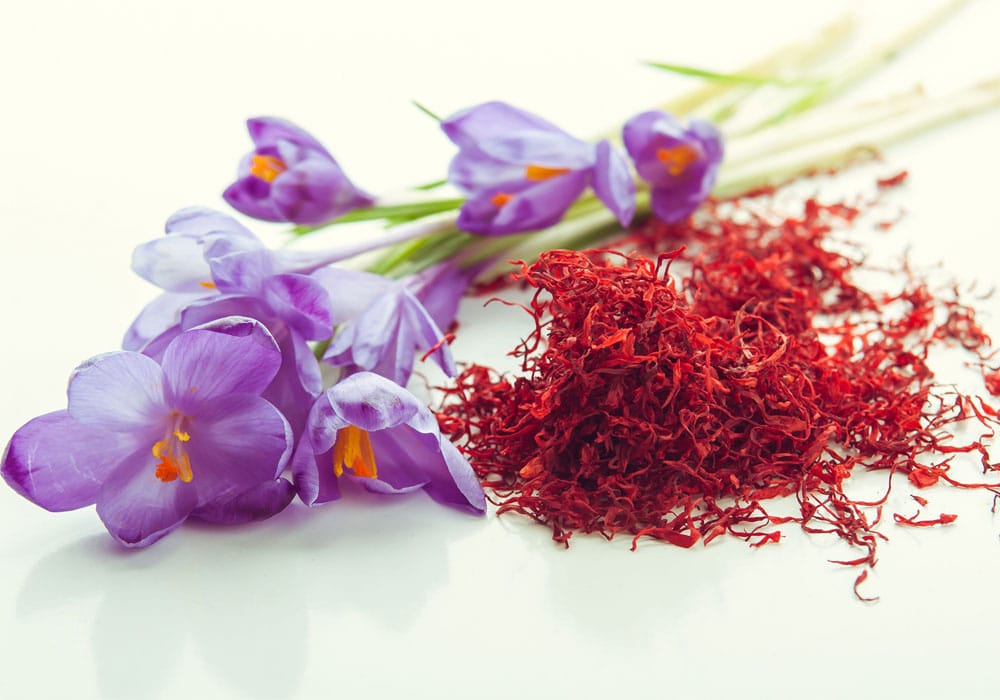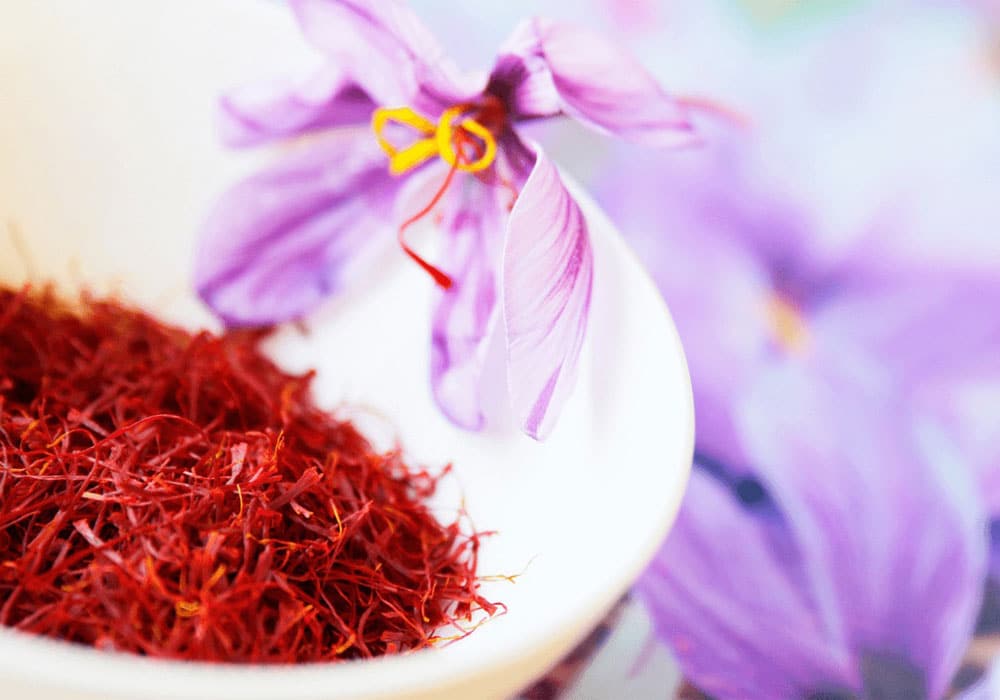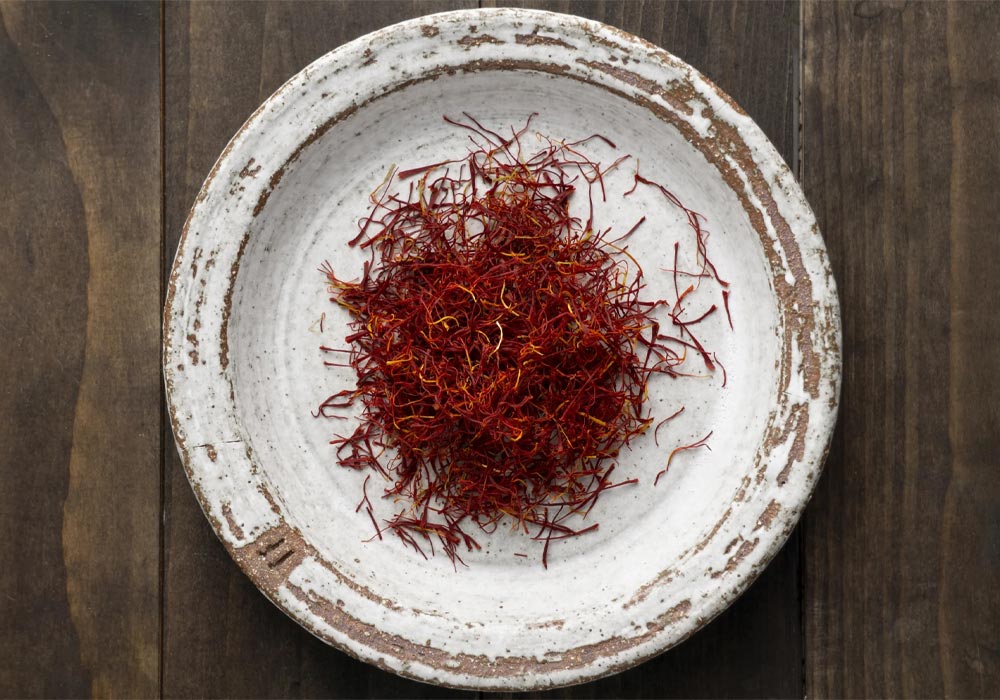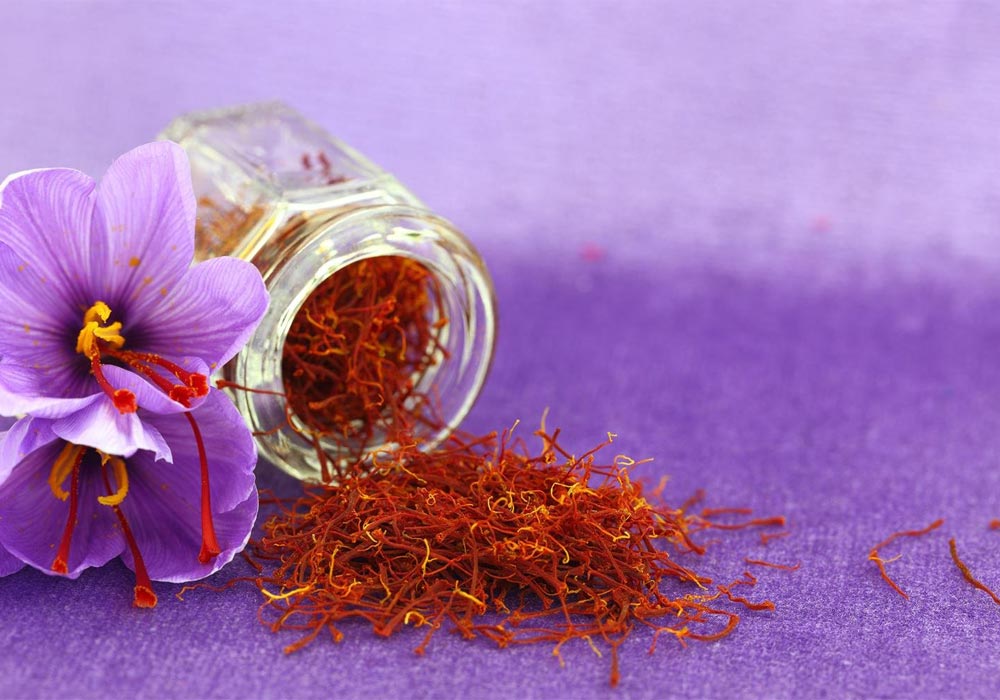Saffron, often referred to as the “red gold” of nature, is one of the most precious and valuable spices known to humanity. It has held a special place in the traditions and herbal medicine of various cultures, especially in Iran, for centuries. Beyond its unmatched aroma and vibrant color, saffron possesses numerous therapeutic properties, many of which are closely linked to digestive health. Digestive disorders, caused by factors such as poor diet, stress, infections, and unhealthy lifestyle habits, can significantly affect quality of life. Using natural substances like saffron to alleviate these conditions is considered an effective and low-risk approach.
Structure and Composition of Saffron
Saffron is derived from the dried stigmas of the Crocus sativus flower and contains a wide range of active compounds. The most important of these include crocin, safranal, picrocrocin, and a group of flavonoids. Crocin is responsible for the vibrant orange-yellow color and has powerful antioxidant and anti-inflammatory properties. Safranal provides saffron’s distinct aroma and is known for its calming and anti-stress effects. Picrocrocin is responsible for the slightly bitter taste and plays a role in enhancing digestive processes. Flavonoids act as natural antioxidants, protecting cells from oxidative stress. Together, these compounds make saffron a potent anti-inflammatory, antimicrobial, and soothing herb that can aid in treating digestive disorders.
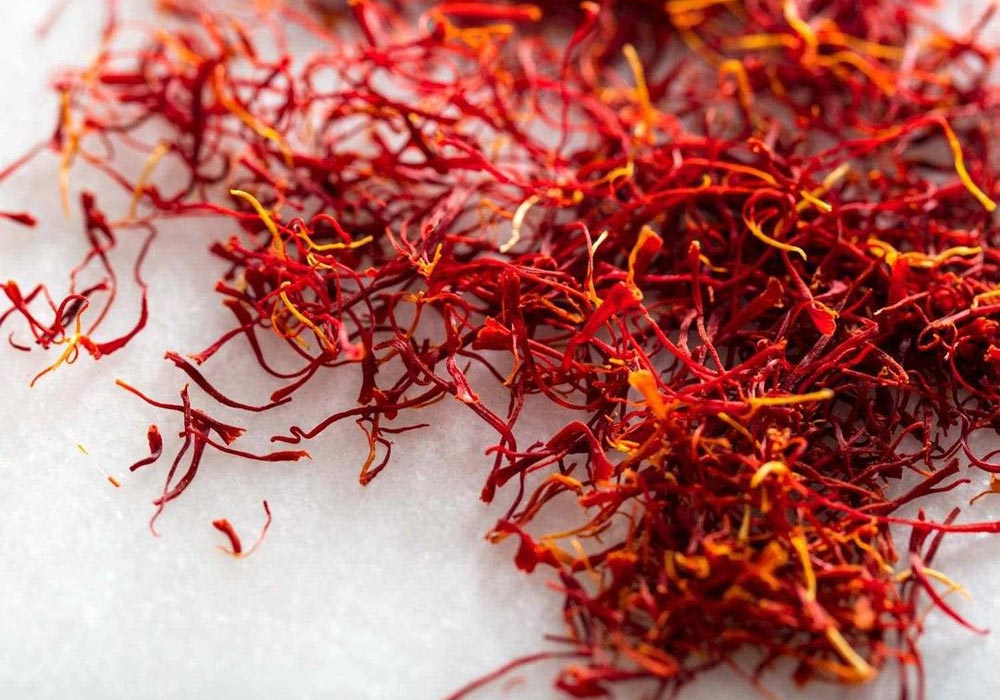
Common Digestive Disorders
Digestive disorders encompass a wide range of conditions that many people experience at some point. These include indigestion, stomach and duodenal ulcers, gastritis, irritable bowel syndrome (IBS), gastroesophageal reflux disease (GERD), bloating, and constipation. Contributing factors may include an unhealthy diet, daily stress, overuse of chemical medications, microbial infections, and genetic predispositions. Indigestion often manifests as discomfort and heaviness in the stomach, causing pain and interfering with the digestion of food.
Acid reflux leads to a burning sensation and inflammation in the esophagus, which, if left untreated, may result in more serious complications. Stomach ulcers, caused by damage to the stomach’s protective lining, can become dangerous without proper treatment. IBS is a functional disorder marked by abdominal pain and changes in bowel habits. Understanding and properly managing these conditions is essential to maintaining overall health and preventing chronic illnesses.
Benefits of Saffron in Digestive Health
As a medicinal herb rich in active compounds, saffron has significant effects on the digestive system. This natural spice can help reduce inflammation, protect the stomach lining, and enhance digestion. Studies of saffron’s properties indicate that it is an effective and safe remedy for promoting gastrointestinal health and improving digestive function.
Anti-inflammatory Effects and Relief from Gastritis
Inflammation is a natural response to injury or infection, but chronic inflammation can lead to tissue damage. In the digestive tract, inflammation of the stomach lining contributes to conditions such as gastritis and ulcers. Active components in saffron, such as crocin and safranal, exhibit strong anti-inflammatory effects by reducing the production of inflammatory substances and enzymes in the stomach lining. Research has shown that saffron can lower inflammatory responses and accelerate the healing of damaged tissues. These anti-inflammatory effects reduce pain and discomfort, contributing to the restoration of healthy stomach lining.
Protection of the Stomach Lining and Ulcer Prevention
The stomach’s mucosal lining serves as a protective barrier against stomach acid and harmful agents. Saffron stimulates the production of this mucosal layer, helping to safeguard the stomach wall. This barrier prevents direct contact between stomach acid and stomach cells, thereby preventing ulcer formation. Laboratory and animal studies have shown that saffron increases mucosal thickness and reduces the severity of induced ulcers. Additionally, saffron can reduce acid secretion and inhibit the enzymes responsible for producing stomach acid, lowering acidity and promoting healing in the digestive tract.
Improving Digestion and Reducing Indigestion
Saffron enhances digestion by increasing the secretion of digestive enzymes and bile, allowing food to break down more efficiently and nutrients to be fully absorbed. It also improves gastrointestinal motility and helps facilitate gastric emptying. This prevents food stagnation and alleviates symptoms of indigestion. Individuals with indigestion often experience bloating, stomach pain, and a feeling of fullness—symptoms that saffron can help relieve. Moreover, saffron’s antispasmodic properties relax the muscles of the gastrointestinal tract, reducing cramping and discomfort.
Soothing Effect on the Digestive System
Stress and anxiety can have a profound impact on digestive health, exacerbating symptoms of conditions like IBS and intestinal spasms. Saffron, due to calming and anti-anxiety compounds like safranal, can soothe the nervous system and reduce muscular tension in the gut. This calming effect helps relieve abdominal pain, reduce spasms, and improve bowel function. People whose digestive issues are stress-related may benefit from incorporating saffron into their wellness routines.
Antimicrobial and Natural Disinfectant Properties
Some digestive disorders are caused by bacterial infections, with Helicobacter pylori being the most prominent—an established cause of peptic ulcers. Saffron’s antimicrobial properties allow it to inhibit the growth and activity of harmful bacteria. Multiple studies have demonstrated that saffron extracts can reduce or eliminate pathogenic bacterial populations, acting as a natural disinfectant. This makes saffron a promising supplementary treatment for gastrointestinal infections.
Scientific Evidence and Research Studies
Numerous studies have explored saffron’s impact on digestive disorders, with findings consistently supporting its therapeutic potential. Clinical trials have shown that patients with peptic ulcers experienced significant reductions in pain and inflammation after taking saffron supplements. In animal studies, saffron extract increased mucosal thickness and reduced acid-induced gastric lesions. Laboratory analyses have revealed that crocin can inhibit the growth of bacteria such as Helicobacter pylori. These findings present saffron as a reliable and effective natural remedy for gastrointestinal problems.
How to Use Saffron for Digestive Health
Saffron can be consumed in various ways, depending on individual needs and preferences. One of the simplest methods is making saffron tea—by steeping a few saffron threads in warm water and drinking it once or twice daily. Saffron tea is known for its calming, anti-inflammatory, and digestive-boosting effects. Saffron supplements in capsule or extract form offer a more precise dosage of its active ingredients. Additionally, incorporating saffron into dishes such as rice, stews, and soups is an effective way to enjoy its benefits. Traditional practices also recommend combining saffron with honey or milk, which may enhance its soothing and anti-inflammatory properties. However, moderation is key, as excessive consumption can lead to side effects like nausea or allergic reactions.
Precautions and Warnings
Despite its many health benefits, saffron should be used with caution. Some individuals may be allergic to saffron, experiencing symptoms such as itching, swelling, or respiratory issues, and should discontinue use if these occur. Those taking specific medications should consult a doctor before adding saffron to their diet, as interactions may occur. Pregnant and breastfeeding women are advised to limit their intake, as high doses might stimulate uterine contractions. When consumed responsibly and paired with a balanced diet and healthy lifestyle, saffron can greatly support digestive wellness.
Buying Fresh and Pure Saffron from Tida Saffron: The Secret to True Flavor
Purchasing fresh and pure saffron from Tida Saffron is the key to unlocking its authentic flavor and exceptional quality—something every saffron enthusiast desires. Tida Saffron selects only the finest saffron from top farms and uses advanced harvesting and drying techniques to preserve the natural aroma and freshness of the product. The saffron offered by Tida is 100% pure and free from any additives or adulteration, ensuring customers enjoy its full taste and benefits.
Proper packaging and optimal storage conditions help maintain saffron’s potency and fragrance until use. Moreover, considering the high quality and authenticity of the product, the price of Iranian saffron offered by Tida Saffron is both fair and competitive, further increasing customer satisfaction. This commitment to excellence is the reason behind Tida Saffron’s strong reputation in the market, making every use a truly enjoyable and memorable experience. Choosing Tida Saffron guarantees real flavor and lasting quality for any kitchen and culinary use.
Conclusion
Saffron, nature’s red gold, holds a special place in cultural and traditional medicine, especially in Iran, thanks to its unparalleled aroma, color, and therapeutic effects. Its positive impact on digestive health—including reducing inflammation, protecting the stomach lining, enhancing digestion, and easing symptoms of gastrointestinal disorders—makes it a highly valuable natural remedy. Given the complexity and commonality of digestive issues and their impact on daily life, natural herbs like saffron, with anti-inflammatory, antimicrobial, and calming effects, offer a safe and effective solution.
Choosing fresh and pure saffron, such as that provided by Tida Saffron, ensures maximum benefits and an authentic experience that supports gut health and overall well-being. Ultimately, proper and moderate use of this precious spice can play an important role in maintaining digestive balance and enhancing quality of life.
Also read:



